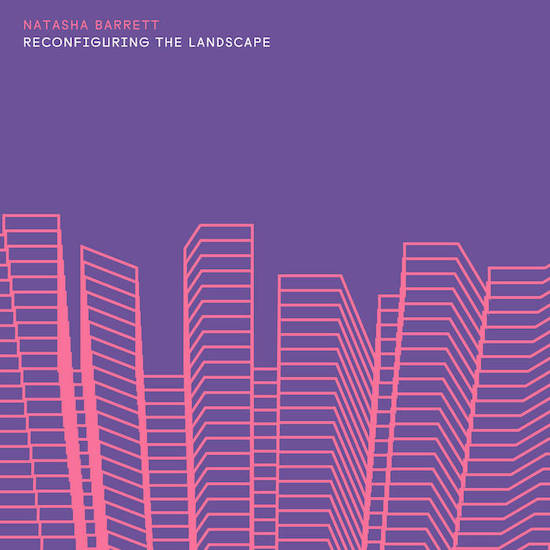The wooden thunk of shutters opening, followed by a church bell sounding once and then ambient sounds: splashing water, a dog barking in the distance, the occasional voice. Natasha Barrett’s recordings provide a whole new perspective on ‘noise’. The opening track on her new release Reconfiguring the Landscape is called ‘Moments from Venice 1’ and, with the other four pieces on the album, is based on site-specific recordings. The first two tracks, both based on the sounds of Venice, make music from the sounds of the city. There can be few places more aurally distinctive than La Serenissima, but sound is not what immediately comes to mind. Isolated from the multiple sensory stimulations in a place that is so dense with people and sights, Barrett makes its everyday sounds into a rich, distinctive and all-encompassing experience. There is so much here, from the snatches of Italian floating in the September air to the hollow bumping gondolas jostling gently with the tide, to the different church bells, suddenly ringing together in a chorus, some close and some distant, each with its own distinctive pitch. There are events, too, at least surmised, as something flops splashing into a canal or a strange, booming thud ripples the soundscape.
Barrett’s work exists at the margins of definition: is it music, field recording, art installation? When a choir of female voices starts to sing a ‘hallelujah’ there is unexpected melody, but most of the time she reflects the sounds of life back to us, shifting and combining, sometimes generating spontaneous electronic music as she plays with the synchronicities. The other tracks are recorded in and around Graz and Oslo, and each place sounds almost entirely different. There are seagulls everywhere for example, but a Venice seagull sounds completely unlike an Oslo one, more ominous and echoey, while the Norwegian gulls provide lighter top notes against the bass of ships in the harbour. Places sound as distinct from one another as they look, something we often miss. In a time when many people experience the places around them through noise cancelling headphones, work that shows us how to really listen is much-needed.
Reconfiguring the Landscape consists of recordings composed as site-specific installations or performances, bringing the sounds of place back to itself. Off-site, they bring the place to the listener, providing an immersive experience which is remarkably satisfying, even addictive. Barrett’s work, which stirs memories of the late lamented Ian Rawes’ London Sound Survey, is brilliant in its apparent simplicity – brilliant, in that it shines with life, energy and the passing of time as the engine of existence. The highest tribute I can pay to Natasha Barrett is that, although her work may not even count as music, it is hard to listen to anything else afterwards because she has rewired our expectations of sound.


